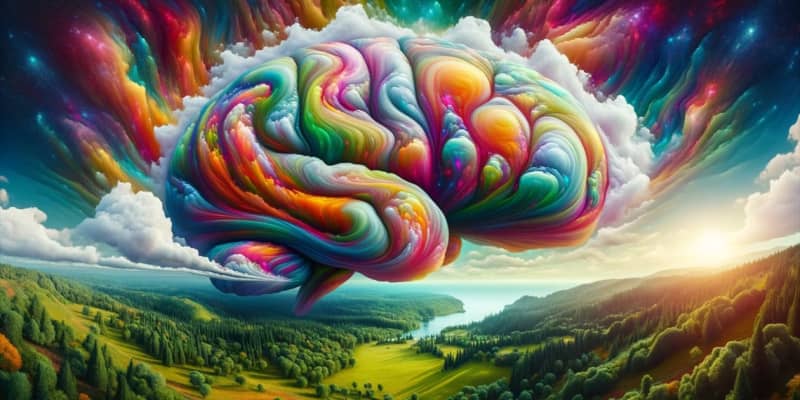With New Declaration, Luminaries Warn That Online Censorship is Destroying Freedom; Psychedelic Users Tended to Have Better Mental Health Outcomes During the COVID-19 Pandemic, and other C-Virus related stories
With new declaration, luminaries warn that online censorship is destroying freedom:
Since the COVID pandemic, authoritarians in the US and around the world have cynically used claims of “disinformation” to censor ordinary people and stifle dissent about everything from the efficacy of masks and vaccines to the war in Ukraine, the Middle East situation, and Hunter Biden’s laptop.
Whatever your political bent, this new form of speech control is a threat to you.
Only by debating freely in a rapidly fragmenting world can we resolve differences without resorting to violence.
To that end, a group of 136 academics, historians and journalists from the left, right and center of the political spectrum have come together to warn President Biden that this rapidly growing censorship regime “undermines the foundational principles of representative democracy.”
In their “Westminster Declaration,” released Wednesday, the international group points out that the best way to combat actual disinformation is with free speech.
“Open discourse is the central pillar of a free society, and is essential for holding governments accountable, empowering vulnerable groups, and reducing the risk of tyranny … We do not want our children to grow up in a world where they live in fear of speaking their minds.”
The eclectic group that has signed the declaration to fight censorship includes Canadian psychologist Jordan Peterson, UK biologist Richard Dawkins, NYU social psychologist Jonathan Haidt, Julian Assange, the Australian founder of WikiLeaks, actor Tim Robbins, evolutionary biologist Bret Weinstein, economist Glenn Loury, filmmaker Oliver Stone, whistleblower Edward Snowden, British comedian John Cleese, Slovenian philosopher Slavoj Žižek, British journalist Matt Ridley, Stanford professor Jay Bhattacharya, Harvard professor of medicine Martin Kulldorf, Australian journalist Adam Creighton, French science journalist Xavier Azalbert and German filmmaker Robert Cibis. —>READ MORE HERE
Psychedelic users tended to have better mental health outcomes during the COVID-19 pandemic:
A recently published study, which was conducted during the COVID-19 pandemic, suggests that individuals who have used psychedelic substances experience lower psychological distress, improved well-being, and enhanced post-traumatic growth. The new findings appear in the journal Scientific Reports.
The use of psychedelic drugs has long been a subject of fascination and debate. Historically, these substances have been associated with counterculture movements, and their effects have been portrayed in various ways in popular culture. However, in recent years, researchers have started to examine their therapeutic potential, particularly in addressing mental health issues like depression, anxiety, and post-traumatic stress disorder (PTSD).
The COVID-19 pandemic presented an unusual opportunity to investigate the relationship between hallucinogenic drug use and mental health. With much of the world facing lockdowns and isolation, the researchers wondered whether these substances could play a role in mitigating the psychological toll of the pandemic.
“In a previous paper, we found for the first time that psychedelics may help with coping processes in stressful situations. The pandemic was a perfect opportunity to test the hypothesis,” said study author José Carlos Bouso, the scientific director for the International Center for Ethnobotanical Education, Research, and Service (ICEERS)).
For their study, the researchers recruited a sample of 2,971 participants for the baseline assessment, with 1,024 participants at the first follow-up (two months later) and 455 participants at the last follow-up (six months after the baseline assessment).
To gather data, the team developed an online survey specifically designed for this study, which was made available in Spanish, Portuguese, and English. The survey reached individuals from over 80 countries, including Spain, Brazil, and many others, thanks to snowball sampling and online dissemination through various channels, including social media, scientific journals, and community websites.
“The survey was released to the general population,” Bouso noted. “We did not disclose that we were conducting research about psychedelics to avoid biasing the answers.” —>READ MORE HERE
Follow links below to relevant/related stories and resources:
Pfizer jacks up price of five-day course of COVID drug Paxlovid to $1,400
Pfizer more than doubles price of lifesaving Covid-19 medication Paxlovid as US transitions out of pandemic phase
USA TODAY: Coronavirus Updates
YAHOO NEWS: Coronavirus Live Updates
NEW YORK POST: Coronavirus The Latest








Comments are closed.